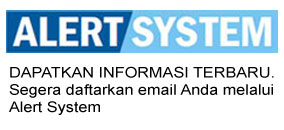| Edisi Minggu ke 21: Selasa 3 Juni 2020
Webinar Stunting Intervention in Indonesia: Leaving no child behind by 2030, Can We ? In the Context of COVID-19 Pandemic Community of Practice for Health Equity June 18, 2020 Stunting is widely known as impairment of growth clinically shown through the short stature of a child compare to his age. Stunting is measured by a height-for-age z-score of more than 2 standard deviations below the World Health Organization (WHO) Child Growth Standards median. Child stunting can happen in the first 1000 days after conception and is related to many factors, including socioeconomic status, dietary intake, infections, maternal nutritional status, micronutrient deficiencies, environment and inadequate psychosocial stimulation a child receives during development period. Child stunting also has a higher risk of suffering from chronic illness in his adult life. In fact, stunting and other form of malnutrition estimated to contribute to the reduction in 2-3% of Gross Domestic Product (GDP) annually. Therefore, the diagnosis and intervention are crucial during the first 1000 days of life. Menggunakan Social Determinants untuk Mempromosikan Keadilan Kesehatan Selama Krisis
Kesenjangan kesehatan adalah hal yang sulit diatasi di kalangan masyarakat. Terlebih lagi di negara demokrasi dan berkembang seperti Indonesia, terlihat jelas disparitas sosioekonomi antara warga, yang seterusnya mempengaruhi perbedaan kondisi kesehatan mereka. Krisis pandemi COVID-19 yang sedang berlangsung telah memperluas kesenjangan tersebut. |
|||
| Website ini akan update setiap Selasa pagi. Nantikan Informasi terbaru setiap minggunya. | |||
|
+ Arsip Pengantar Minggu Lalu |
|||
|
|
Jaminan Kesehatan Nasional dan Keadilan dalam Kesehatan di Masa Pandemi |
||
02 Jun2020
Edisi Minggu ke 21: Selasa 3 Juni 2020
Subscribe
Login
0 Comments










